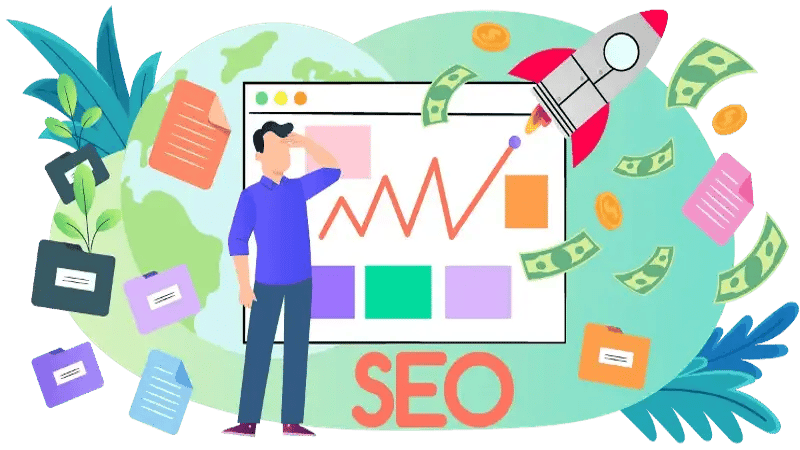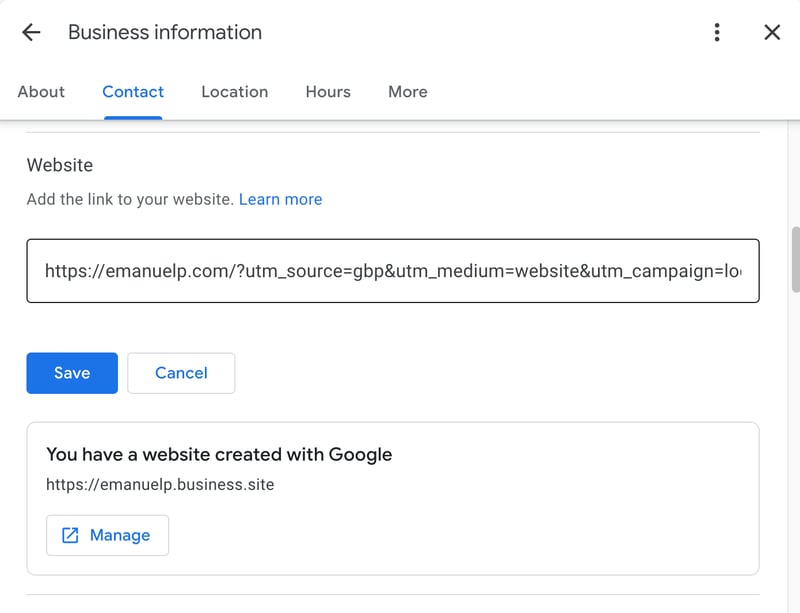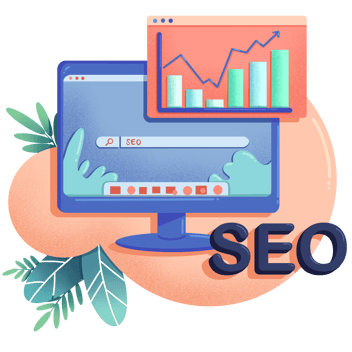A Complete Guide to Local SEO in 2026 - Dominate Local Search
Many small businesses depend more on local SEO than they know. Their Google Business Profiles, for example, can generate more leads than their website. Plumbers, roofers, and many trade gigs that often require an "emergency" intervention need to dominate the local search results in order to become relevant.
But it's not just for these types of businesses—big fast-food chains like McDonald's need to have a different approach altogether.
In this guide to local SEO, we'll explore local Search Engine Optimization, why it's essential, and how you or your client can leverage its powers.

What is Local SEO?
The process of improving search involves optimizing a business's online presence to enhance its visibility and show local search results more prominently.
As part of Search Engine Optimization, local SEO is the practice of creating and optimizing content, updating and managing online business listings, and building local citations to increase a business's chances of being found by local customers.
It also involves targeting keywords specific to a certain location and optimizing a website for mobile users, who often search for local businesses while on the go.
Best coffee shop near me is something I search for every time I visit a place. And no, I don't always have my laptop with me.
The main goal is to help businesses attract more customers from their local area and increase foot traffic to their physical locations.
To achieve results, the campaign manager needs to focus on using local keywords that are relevant to the business and its target audience. This can be achieved through thorough keyword research to identify the most effective local keywords for optimizing the business' website and online content.
Pro tip: many tools don't offer the keywords that the local residents use, slang or the nickname a place has. Try to get someone local to help if you're unfamiliar with the local vocabulary.
Why Does Local SEO Matter?
-
Local Search Importance: 46% of all Google searches are local. [99 Firms] Local searches play a pivotal role in online user behavior, with nearly half of all Google searches having a local intent. This underscores the significance of optimizing your online presence for local search rankings and effectively reaching and engaging your target audience.
-
Mobile Search Impact: 78% of local mobile searches result in an offline purchase. [SEO Tribunal] Most local searches on mobile devices translate into real-world actions, with a substantial 78% leading to offline purchases. Ensuring your local SEO is mobile-friendly is crucial for converting digital interactions into tangible business outcomes.
-
Google My Business Influence: Businesses with complete Google My Business listings are 2.7 times more likely to be considered reputable by users, and customers are 70% more likely to visit and 50% more likely to consider purchasing from businesses with a complete Business Profile. [Google Business Profile Help] A comprehensive Google My Business profile significantly enhances your business's credibility, making it almost three times more likely to be perceived as reputable by potential customers. Prioritize completeness and accuracy in your GMB listing.
-
Online Reviews Impact: 88% of consumers trust online reviews as much as personal recommendations. [BrightLocal] Online reviews hold immense sway in consumer decisions, with a staggering 88% trusting them as much as personal recommendations. Encouraging and managing positive reviews is vital for building trust and attracting local customers.
-
Local SEO and Voice Search: It is estimated that about 60% of searches will be done through voice. [demandsage] The rising prevalence of voice search necessitates adapting local SEO strategies. With an anticipated 60% of searches being conducted through voice, optimizing for natural language queries becomes paramount for local businesses aiming to dominate.
Ranking Factors for Local SEO
When it comes to local, some key factors influencing ranking include how closely the business matches the user's search terms, its proximity to the user's current location, and the business' well-known status in the local community.
Other important factors include the accuracy and consistency of business information across different online platforms (NAP citations for your business - more on that later), the quantity and quality of customer reviews, and the optimization of the business website for local search.
Pro tip: Social media profiles and posts do show up in the SERPs as well and there have been studies about social signals influencing some of these search results. 😉
By focusing on these ranking factors, businesses can improve their chances of ranking higher in Google's local results and attracting more potential customers in their area.
Use Google to search for the main terms and see what types of results it shows. You might see websites, you might see some ads, and you might see the local map pack prominently featured - for most local results, it's really obvious on mobile.
That's one of the best ways to determine what kind of approach you should have to help prospects find your business.
Tools for Local SEO
While there are many SEO tools for local, using common sense is the best way to approach this. From a business owner's perspective, I always recommend working with an SEO consultant or agency that will help you navigate all this - as it's time-consuming.
You only need to know a couple of things and some best practices.
If you are a digital marketer who's helping business owners stand out in local search, then you have a set of local SEO tools to help you better manage all the work required. It won't be fair to mention some and leave out others.
That said, the following can also be called tools:
Your Website
The most important asset of any business when it comes to marketing. A Google Profile could get suspended, and an Instagram account can be removed, but a website has been and always will be the main point of attraction and the place you want your prospects to go.
A well-optimized website is the first step to a successful local SEO campaign.
Google thinks this is good as well ;)
What does a well-optimized website mean?
Ensure your on-page SEO is done: accurate information about your business, location, proper headings, subheadings mentioning your location, meta description, and overall good content relevant to the user's query are the first steps to improving your business visibility and your local rankings.
Good website speed - a decent local server will do the job. Don't overload it with useless plugins and large photos. Rarely any image needs to be larger than 1 MB.
Don't overthink this, either—common sense.
Multiple location pages
Have a page for each location you serve. It's important because often, to be listed in the local pack, you need to mention that specific location on your website, and a full page is better than a paragraph. A plumber is serving multiple cities or counties around his main location.
The idea here is to do the areas you are serving; don't over exaggerate, and don't use the same content verbatim - Google has slapped many because the content on these types of pages was not unique.
And no, changing just the name (Best Roofer in City X) doesn't cut it :)
Pro tip: do your local keyword research, and don't be scared of a low search volume; there's proof that there can be value even in no-volume keywords.
Find different local keywords and mention those. Don't forget to mention your products and services - I've seen some that "forgot" to do so.
Pro tip: If you have a car with your logo and website URL printed, take a photo that includes some local landmarks - next to the city hall, for example. Don't forget to add the Alt Tag to these images and mention the location. You will be surprised to see that you will also show up for other types of searches - which, in this case, is not necessarily bad - it helps strengthen brand awareness.
NAP Consistency
NAP is an acronym for Name, Address, and Phone Number, and it needs to be consistent across all the platforms and profiles. I usually take the NAP from the Google Business Profile to ensure the address and the postal code format is the way Google displays it and not other interpretations. So if your street address is blv. on Google and your website, you spell it boulevard, adjust it to match Google's.
Fun fact: you won't believe how many businesses have their company name wrong. What does this tell Google?
Google Business Profile
Formerly known as Google My Business. The single most important profile for many businesses, such as plumbers or roofers who live from GBP. In a hypothetical extreme situation, if I choose between working on the GBP or the website, I might choose GBP. It is also the "profile" that feeds Google Maps.
UTM tag all the links - I add the company's services as products, an excellent optimized and appealing image, a good description, and a link back to the site. Do the same for your services or products. Ensure no setting, option, or paragraph - called business attributes - is not left out.
Pro tip: I've used Claire’s UTM tagging spreadsheet for years.
Have your customers leave positive reviews on your Google Business Profile and have them mention your business name and geographical locations.
Pro tip: do you have negative reviews? It's okay; there's no business out there that doesn't have negative reviews. And Google doesn't do a great job at removing fake reviews. What can you do? Get new, positive reviews with photos! Your customers have the option to upload a photo of your products or services. Google likes that, and they will make them more prominent.
Pro tip: enable your Google Business Site. Although they have hidden this option, go edit your business information, under the contact tab, just below where you put your actual website address, you will see the option of managing this Google Business site which is fed with the info from your profile - photos, posts, etc.

Local Directories & Citations
There are endless directories to which you can get your business listed. Seriously. I can find at least 1000 :) Not all are relevant - probably 50 or so - quality over quantity. Also, consider the right directories for you - there are special directories just for dentists, for example, so if you're an optometrist, that directory might not be relevant.

Here's when the NAP consistency is important. Google will understand at one point that it's your business online profile listed there.
There are listing management services that use Yext - a place where you can put your info and feeds in all the other relevant platforms (Yelp, Bing, Find Me Local, Apple Maps, etc.) - and in most cases, these do the trick.
Here, I need to note that sometimes the connection breaks, so it's a good idea to regularly audit the local listing and ensure it's up-to-date and relevant.
Monitoring and getting local reviews on these platforms can also help - think about Yelp here and how influential the profile is.
Again, working with a local SEO consultant will help you navigate and better understand what these services do - and take the workload from you.
Local Backlinks
You are already a stand-up individual who is actively involved in the community. You're a member of your local chamber of commerce, BNI, and other types of memberships and contributing through sponsorships to the evolution of the community.
Why not leverage this to get some local backlink juice to your business?
In addition to sponsoring local community entities like churches and neighborhood schools, numerous other effective strategies for gaining valuable backlinks exist.
Engaging in local events and charities can provide opportunities for backlinks from event pages and press releases. Collaborating with local bloggers and influencers for features or guest posts can also be a fruitful avenue.
Moreover, participating in local business forums and contributing to discussions can establish your authority and lead to backlinks.
Remember, the quality and relevance of backlinks are crucial; they should come from reputable local sources that resonate with your business. This not only boosts your local SEO but also helps in building a robust and community-focused brand image.
P.S. If you're not doing what I've mentioned in the first sentence of this paragraph, you should. And not just for the SEO benefits - it's gratifying also on a personal level.
Local SEO Tips
Initially, ensure that your business' NAP citations (name, address, phone number) are uniform and precise across all your digital listings.
Next, optimize your website with local keywords and create location-specific content: landing pages, blog posts, etc. Encourage customer reviews on Google My Business and other relevant review platforms to build trust and credibility with potential customers. Engage with your local community through events, sponsorships, and partnerships to strengthen your local presence and increase local referrals. By implementing these local SEO tips, you can enhance your local search performance, increase traffic and lead conversions, and attract more local customers to your business.
Get your local on-page SEO done right - such a basic thing to do, yet many don't have it done correctly.
Pro tip: have Google Analytics, Google Search Console, and your Google Business Profile set up. After a short while, you will start seeing some of the keywords you're ranking on Google - and many will have location keywords in there.
Pro tip: link from your About page to some of the local business directories you have registered for.
Take your time. This is often not a one-man job; it's often a tedious task, and the results won't happen overnight. But these will inevitably help your business win at the local SEO game. You only need to be on top of your competitor, one at a time.
Local SEO - Conclusions
In conclusion, dominating local SEO is crucial for enhancing your business visibility and attracting local searchers. By focusing on key SEO ranking factors and ensuring your business profile is prominent in top local business listings, you can significantly improve your online presence - resulting in more revenue for your business.
This is important not just for its ability to work for local businesses but also for its role in connecting you directly with your target audience.
By implementing advanced SEO techniques, you can rank higher on organic search results at a local level, boosting your ranking positions and establishing your business as a leading choice in your community.
Remember, the journey to effective local SEO is ongoing, but the rewards are well worth the effort.
Local SEO FAQs
Local SEO is an excellent strategy for businesses aiming to enhance their visibility in search results. If your business serves a local community or has a physical location, local SEO can be particularly beneficial. By optimizing your business profiles on business listings and maps, you make it easier for local prospects to find you. This approach works well for local businesses of all types, helping to increase your presence in top local listings.
Additionally, building citations in relevant local directories further strengthens your local SEO efforts. These citations ensure your business information is consistent across the web, which is crucial for improving your visibility in local search results. In summary, if your business seeks to attract local clients and compete effectively in your area, local SEO is a strategy you should definitely consider.
Yes, it's possible to conduct local SEO without a website, but it's important to understand the SEO basics to make the most of this strategy. Google sees value in local content, so having on-page content where you can include local keywords is highly beneficial. This is especially true in competitive domains or locations. By leveraging local sites and platforms, you can establish a strong presence, even without a traditional website. These platforms can help amplify your local visibility and contribute significantly to your overall local SEO efforts.
It depends :) The timeline for seeing results can vary, but it's important to understand that it's a gradual process. Implementing best practices is key to improving your rankings, both on a local level and in organic search results. Typically, you might start noticing improvements in your local SEO endeavors within a few months, but it can take up to six months or more to see significant changes. This timeframe is influenced by factors such as the competitiveness of your industry and the current state of your online presence.
Consistent effort in optimizing your business for local search is crucial. This includes ensuring your business shows up in the top local businesses on major directories and search engines. As you continue to rank higher organically and adhere to SEO best practices, you'll gradually climb up the ranking positions. Remember, local SEO is an ongoing process, and maintaining your efforts is key to long-term success.
This content is also available in:
- German: Leitfaden für lokale SEO im Jahr 2026 - Dominieren Sie lokale Suchen
- Spanish: Guía completa de SEO local 2026: Domina la búsqueda local
- French: Guide complet du référencement local - Dominez la recherche locale
- Italian: Guida completa alla SEO locale nel 2026 - Dominare la ricerca locale
- Romanian: Local SEO - ghid complet pentru 2026 - Domină Rezultatele Locale
- Chinese: 2026 年地方搜索引擎优化完全指南》--主宰地方搜索

Opinions expressed in this article are those of the guest author. Aspiration Marketing neither confirms nor disputes any of the conclusions presented.








Leave a Comment